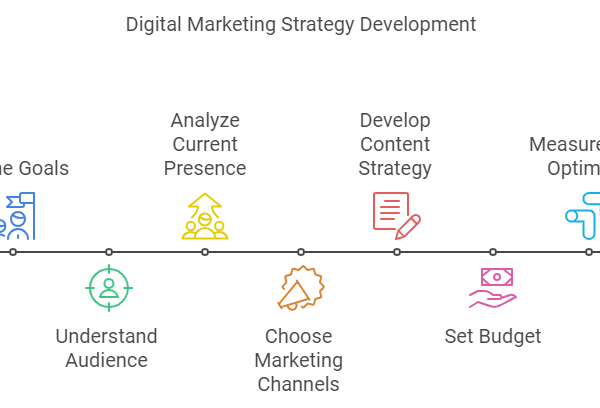
In today’s fast-paced world, time management skills for students are crucial, especially for university students juggling multiple responsibilities. Academic achievement often hinges on one’s ability to manage time effectively. But how exactly do these time management skills influence academic success? This article delves into the relationship between time management and academic performance, exploring various strategies and insights from recent studies.
Understanding Time Management
Definition of Time Management
Time management refers to the process of planning and controlling how much time to spend on specific activities. Good time management enables individuals to complete more in a shorter period, lowers stress, and leads to career success. It’s about making the most of your time, balancing multiple tasks, and setting priorities.
Key Principles of Effective Time Management
Effective time management is built on several key principles:
- Prioritization: Identifying what’s most important and focusing on those tasks.
- Scheduling: Allocating specific times for tasks and sticking to the plan.
- Delegation: Sharing tasks when possible to optimize efficiency.
The Role of Time Management in Academic Success
How Time Management Affects Study Habits
Time management influences how students approach their studies. Those who manage their time well are likely to create effective study schedules, leading to better preparation and performance. By allocating specific times for studying, students can avoid last-minute cramming and achieve deeper understanding.
Impact on Stress Levels and Mental Health
Effective time management can significantly reduce stress. When students organize their tasks and set realistic deadlines, they experience less anxiety about upcoming exams or assignments. This, in turn, contributes to better mental health and overall well-being.
Influence on Exam Preparation and Performance
Students who manage their time well often perform better in exams. A structured study schedule allows for comprehensive review and practice, leading to improved retention and understanding of the material.
Strategies for Effective Time Management
Setting Goals and Priorities
Setting clear, achievable goals helps in prioritizing tasks. Students should identify short-term and long-term academic goals and prioritize activities that align with these goals.
Creating a Study Schedule
A well-organized study schedule helps manage workload effectively. Students should plan their study sessions, breaks, and leisure time to maintain a balanced routine.
Utilizing Tools and Apps
Various tools and apps can aid in time management. Calendar apps, to-do lists, and time-tracking tools can help students stay organized and manage their time more efficiently.
Case Study: University Students
Background of the Study
Recent research has focused on university students to explore how time management impacts their academic success. The study involved surveying students about their time management practices and academic performance.
Methodology
The study utilized a combination of surveys and academic performance data. Participants were asked about their time management habits, study routines, and the tools they use, following a structured approach that aligns with the best practices for methodology in a research paper. This approach ensured a comprehensive understanding of how various time management strategies impacted academic success.
Key Findings
The study found that students who practiced effective time management had higher GPAs and reported lower levels of stress. The use of time management tools was also positively correlated with academic success.
Time Management Challenges Faced by Students
Common Obstacles
Students often face challenges such as procrastination, distractions, and lack of motivation. These obstacles can hinder effective time management and negatively impact academic performance.
Strategies to Overcome Challenges
To overcome these challenges, students can implement strategies such as breaking tasks into smaller steps, setting deadlines, and creating a focused study environment.
Benefits of Improved Time Management
Academic Benefits
Improved time management leads to better grades, enhanced study habits, and more effective exam preparation. Students can also balance academic and personal responsibilities more efficiently.
Personal Growth
Good time management fosters personal growth by teaching discipline, organization, and goal-setting. These skills are valuable beyond academics and can benefit various aspects of life.
Long-Term Impacts
The ability to manage time effectively has long-term impacts on career success and overall life satisfaction. It helps individuals achieve their goals and maintain a healthy work-life balance.
Tips for Students to Enhance Time Management Skills
Practical Tips for Better Scheduling
Students should create detailed schedules, set realistic deadlines, and use reminders to stay on track. Prioritizing tasks and breaking them into manageable chunks can also enhance productivity.
Balancing Academic and Personal Life
Maintaining a balance between academic responsibilities and personal life is crucial. Students should allocate time for relaxation, hobbies, and social activities to prevent burnout.
Seeking Support and Resources
Students can benefit from seeking support from academic advisors, counselors, and peer support groups. Utilizing available resources and tools can aid in effective time management.
Conclusion
Effective time management plays a significant role in academic achievement. By setting goals, creating schedules, and overcoming common challenges, students can enhance their academic performance and overall well-being. Implementing these strategies not only improves grades but also fosters personal growth and prepares students for future success.
FAQs
What are some common time management techniques?
Common techniques include creating to-do lists, using time-tracking apps, setting deadlines, and prioritizing tasks.
How can time management improve exam performance?
Effective time management allows for organized study sessions, comprehensive review, and reduced stress, leading to better exam performance.
What tools can help with time management for students?
Tools such as calendar apps, task management apps, and time-tracking tools can help students manage their time effectively.
How does poor time management affect academic performance?
Poor time management can lead to missed deadlines, increased stress, and lower academic performance due to disorganization and procrastination.
Are there specific time management strategies for online learners?
Online learners can benefit from setting a structured schedule, creating a dedicated study space, and using online tools to track their progress and stay organized.











